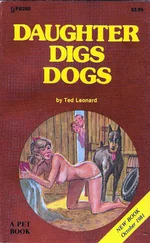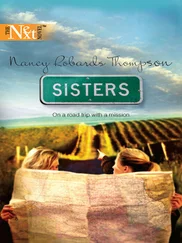A roar went up from the crowd of students in front of the pub as Dick uncorked another jug of mead. Christine made no move to stop him. She was too elated to worry about poisoning a crop of budding archaeologists. Martin had come home the night before, to help his parents set up for the festival.
I’m so glad Martin Peacock kept his promise. I’ve never seen Christine look so happy.
“Speaking of happy . . .” I’d spotted Francesca and Adrian emerging from Saint George’s Lane, arm in arm. “I don’t know why he doesn’t move to Finch. He’s here almost every day as it is.”
Emma’s eyes lit with mischief. “Peggy says they’ve been canoodling in the churchyard.”
“It’s probably true,” I said, noting the bloom on Francesca’s cheeks. “Dimity’s an expert at picking champion canoodlers.”
Thank you, Lori.
The rented public address system crackled suddenly, and Jasper Taxman’s voice came through the static. “Closing ceremonies will commence in five minutes. Would everyone please gather on the green for closing ceremonies. . . .”
Rainey and Paolo rounded people up, like a pair of sheepdogs chivvying a flock. Rainey’s parents, along with baby Jack, were neatly tucked in with Paolo’s multitudinous brothers and sisters, and Miranda Morrow was brought forth from her tent. Mr. Barlow and Buster, the Peacocks and Grog, Mr. Farnham, the Pyms, and Sally Pyne were coaxed toward chairs Martin Peacock had placed before the stage, while Katrina, Simon, and the rest of the college students flopped unceremoniously on the lawn. To judge by the amount of mead they’d downed, I doubted that many of them would rise again before morning.
Adrian and Francesca joined Burt and Annie Hodge over by the war memorial, and the vicar sat with Lilian. Bill and Derek peeled off from the throng and headed toward my table, each pushing a stroller. Finally, Mr. Wetherhead came out of Saint George’s Lane, followed by a coterie of ardent admirers. The little man seemed slightly intimidated by the amount of attention his hobby had drawn, but not altogether displeased. I sincerely hoped that his mother was rolling in her grave.
“Closing ceremonies will not take place on the stage,” Jasper Taxman advised, via the loudspeakers. “Closing ceremonies will take place at the war memorial. Will everyone please turn round. . . .”
There was a flurry of activity while people rearranged their chairs, students scooted into new positions, and the little knot of people who’d gathered near the memorial made room for Peggy Kitchen.
“ Thank you,” Peggy roared, and the crowd fell silent. “ Thank you all for coming to Finch’s Harvest Festival. I hope you’ve had a good time, and that you’ll come again next year.
“I’d also like to thank those of you who made this day possible. There’s too many to name one by one, but you know who you are, so please give yourselves a big round of applause.”
The villagers’ polite clapping mingled with the students’ heartier cheers and a chorus of enthusiastic barks.
“As many of you know,” Peggy continued, “it’s Finch’s tradition to honor not only those who died for their country, but those who served and lived. They loved their homes enough to go out and do something to protect them. We could all learn a lesson from them.
“A place needs its people. Mrs. Harris’ll tell you that a plant needs strong roots to survive. Well, so does a village. Every single person who lives in our village has to dig into it and plant strong roots, and tend those roots each and every day, or the village’ll wither away.
“Sometimes we need a chap like Dr. Culver to dig into our past, to remind us we’re part of a family that stretches back as far as anyone can see. Finch has come down to us like a gift from the past. It’s up to us to make sure it’s fit to pass on to the future.
“You and I, all of us—we have to dig into ourselves, to find the time and energy to keep our village alive and strong. Finch honored its sons and daughters with a memorial because they did something to preserve the place they loved, instead of sitting on their hands and leaving the hard work to someone else.
“Maybe our struggles aren’t as monumental as theirs were, but they’re every bit as important. They’re the everyday battles of ordinary life, the simple slogging that keeps the village young.”
Peggy stepped through the encircling holly bushes and stood silhouetted against the black silk covering the stone cross. The sunlight glinted off her pointy glasses, and a soft breeze ruffled her flowered dress. The crowd had gone quite still. Even Rainey stood, gazing solemnly over the recumbent students, her freckled face sticky with Constantine cream, her braids askew. Peggy had brought the whirlwind to a standstill.
Peggy took a deep breath, clutched a handful of black silk, and yanked. As the cloth fell away, a shocked murmur rippled through the crowd. The Celtic cross had not been cleaned. It remained grubby and inglorious, a testament to years of neglect, a mute but potent symbol of what happened when people sat on their hands and left the hard work to someone else.
Peggy cleared her throat. “If ever you need reminding that the little bit you do can make a difference, just rest your eyes on the memorial, and you’ll know.”
The assembled throng stood as the jury-rigged speakers poured forth the tinny strains of “God Save the Queen.” The Harvest Festival was over.
Visitors made their way to the car park, in the field just beyond the humpbacked bridge, leaving the villagers to begin the task of cleaning up. The bustling activity swirled around four motionless figures near the war memorial. Adrian and Burt stood a little ways off, but Francesca and Annie stood within the circle of holly bushes, their arms around each other, gazing at the row of names carved into the grimy stone. I wondered why they lingered when there was so much to do.
I was about to pack up my bundles and cart them off to the Mercedes, when Rob grasped my collar and tugged. I looked down at him, then past him, at the blue journal.
Take me to the memorial, Lori.
“Bill,” I said, “let’s take Rob and Will to see the memorial.”
I stood, with Rob cradled against my shoulder and the blue journal open in my hand. We crossed the square amid the sound of chattering voices and the public address system’s vagrant squeals, but as we stepped into the circle of holly, the noises seemed to fall away. Will gave a gurgling sigh and Francesca turned her dark eyes to me.
“Did you know?” she asked softly.
I looked at her blankly. “Know what?”
“About this . . .” Francesca pointed to the only place on the cross where the stone, freshly carved, glowed golden in the late-afternoon sun.
Piero Alessandro Sciaparelli. The name stood out, baroque and musical, strikingly different from the homely English names carved above it, but it belonged there nonetheless. Piero had served the country of his birth and the country he’d adopted. He’d been willing to die for one, and live fully for the other. Finch’s sons and daughters, I knew, would welcome him.
“I had nothing to do with it,” I said. “But I think I know who did.”
Francesca nodded slowly, then turned to scan the square. “C’mon, Annie. Mrs. Kitchen needs us.”
Bill and I followed them into the square, and the noise closed in around us. Thumps, groans, laughter, babies squealing, women shouting, dogs barking—the joyous, raucous sounds of my village, coming back to life.
Lilian’s Lemon Bars
Preheat oven to 350° F. Makes 20 bars
cup butter or margarine
1 cup sugar
1 cup all-purpose flour
2 eggs
2 tablespoons all-purpose
Читать дальше








